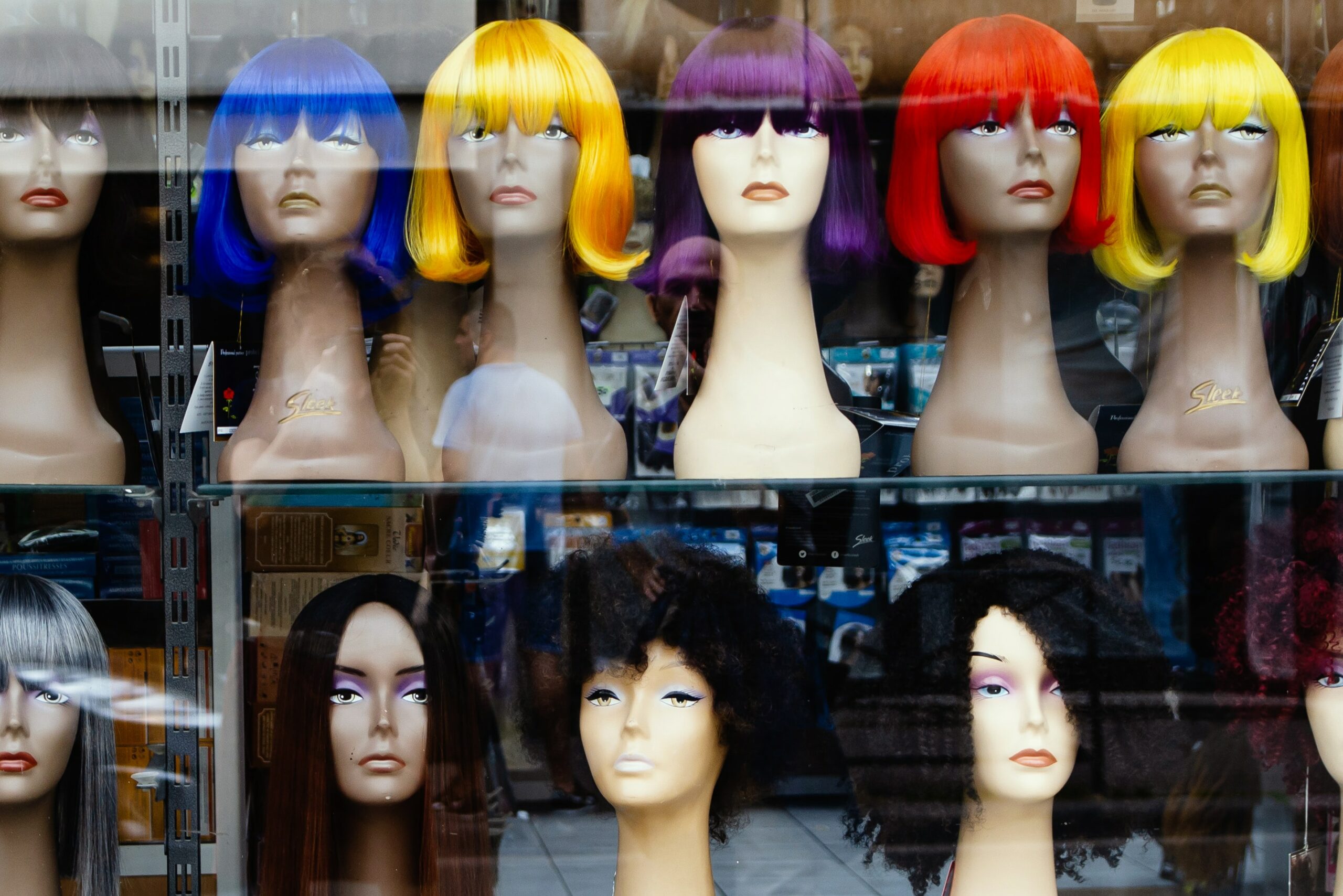
Does Wearing a Wig Cause Hair Loss?
Wearing wigs is a common practice for style, convenience, or personal preference. While wigs themselves don’t directly cause hair loss, prolonged use, improper fitting, or friction can lead to a condition called traction alopecia.
With regular care, breaks from wearing, and proper fitting, these risks can be mitigated. Below, we will look at some issues related to wig hair loss and how to combat them.
Summary
- What Are the Common Causes of Hair Loss From Wigs?
- Traction Alopecia and Wig Hair Loss
- Can I Get Scalp Damage From Wearing Wigs?
- What Are the Treatments for Hair Loss Caused by Wearing Wigs?
- Ways To Prevent Hair Loss From Wearing Wigs
- Elithair’s Advice: How To Restore Your Natural Hair?
What Are the Common Causes of Hair Loss From Wigs?
Common causes of hair loss from wigs include traction alopecia due to tight fitting, constant tension on hair follicles, leading to gradual thinning, and scalp damage from improper wig application, such as using adhesives or clips. These factors can disrupt hair growth cycles and result in temporary or permanent hair loss.
Traction Alopecia and Wig Hair Loss
Traction alopecia, commonly prevalent among individuals styling their hair in tight hairstyles, poses a significant concern, especially within the Afro-Caribbean community. Hairstyles such as box braids or cornrows are frequently chosen for their natural hair.
This condition often manifests as bald patches or thinning, primarily around the hairline, where tension is most pronounced. Its high prevalence can be observed as one in three women of African descent has reported being impacted by traction alopecia.
The connection between traction alopecia and wig-related hair loss is significant. Many wig wearers opt for flat hairstyles underneath to achieve a natural look, often resorting to twists or cornrows. Improper installation or maintenance of these styles can lead to further damage to the hair, exacerbating traction alopecia.
Moreover, securing wigs with clips, bands, or combs can intensify tension along the hairline, putting additional stress on the hair follicles and increasing the risk of traction alopecia.
Can I Get Scalp Damage From Wearing Wigs?
Wigs, whether synthetic or human hair, pose significant challenges to scalp and hair health. Tightly pressed against the scalp, wigs impede the natural functioning of sweat glands, hindering the removal of bodily toxins. When sweat, containing lactic acid, accumulates beneath the wig, it can react with hair keratin, causing damage and exacerbating hair loss.
Moreover, trapped sweat can foster bacterial growth, leading to fungal formations and unpleasant odours, further contributing to hair loss.
Glue extensions and double-sided tape, commonly used to secure wigs, can block scalp pores, damage follicles, and induce permanent harm. This can result in hair dryness, scalp irritation, tension headaches, and ultimately, thinning or bald patches.
Has my wig caused permanent hair loss?
Hair loss caused by wearing wigs can be reversible if addressed promptly. However, if left untreated for an extended period or if there’s underlying damage to the hair follicles, it may lead to permanent hair loss. If this is the case for you, you should consult a medical professional for longer-lasting solutions.
What Are the Treatments for Hair Loss Caused by Wearing Wigs?
Thankfully, there are many solutions for hair loss caused by wearing wigs. These include:
- Avoid tight wig styles to relieve tension on hair follicles.
- Choose wigs made from breathable materials to promote scalp health.
- Incorporate scalp-stimulating treatments like minoxidil.
- Practise gentle hair care routines to prevent further damage.
- Allow the scalp to rest by taking breaks from wearing wigs.
- Consult with a medical professional about hair transplants for more severe cases of hair loss.
Ways To Prevent Hair Loss From Wearing Wigs
There are also ways in which you can prevent hair loss from wearing wigs. These include:
- Regularly cleanse the scalp with a mild shampoo to remove dirt and oil buildup.
- Perform scalp massages to stimulate blood flow and promote nutrient delivery to hair follicles.
- Protect the scalp from sun exposure by wearing hats or using sunscreen.
- Stay hydrated and maintain a balanced diet rich in vitamins and minerals to support scalp health from within.
Elithair’s Advice: How To Restore Your Natural Hair?
If you are concerned about increased hair loss from your wig, it may be due to traction alopecia, or it could be related to the microbial health of your scalp. Using looser styles and ensuring that your natural hair is kept healthy should help to reduce any further damage.
For some people, the traction alopecia may have already affected them significantly, causing hair to permanently stop growing. If you’re interested in a long-term solution for your hair loss, please contact us today to book a consultation with one of our experts to find out if you’re eligible for a hair transplant.
FAQ
How can I properly fit a wig to avoid hair loss?
Ensure your wig fits but not too tightly. Use adjustable straps and avoid using adhesives that can damage the scalp and hair.
Are there specific types of wigs that are better for preventing hair loss?
Yes, wigs made from breathable materials like lace fronts and those with adjustable caps can reduce friction and tension on the scalp.
Can wearing a wig affect the health of my natural hair?
Wearing a wig can impact your natural hair health if it causes excessive sweating, friction, or if not cared for properly. Regularly cleaning and moisturizing your scalp can help maintain natural hair health.
What are the signs that a wig is causing damage to my scalp?
Signs include redness, itching, irritation, bumps, or unusual hair loss. If you notice these symptoms, it may be time to reassess your wig-wearing habits.
How often should I take breaks from wearing a wig?
It’s recommended to take breaks from wearing a wig daily, allowing your scalp to breathe. Aim for at least a few hours of wig-free time each day.
Can certain hairstyles under wigs prevent hair loss?
Yes, protective styles like loose braids or twists can minimize tension on the hair follicles and prevent traction alopecia.


